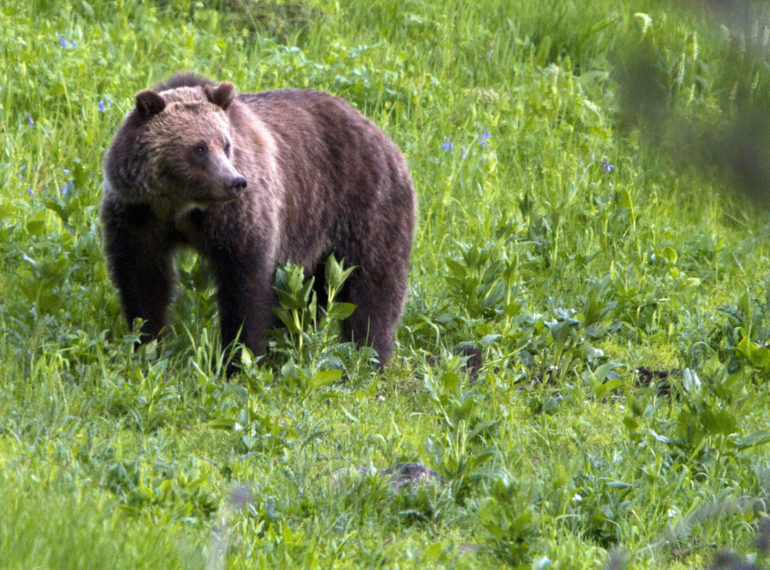In a piece by Penny Preston, US Fish and Wildlife Service Director Dan Ashe said he hopes to announce delisting of the Greater Yellowstone population of Grizzly Bears by the end of the year.
Preston wrote that “Ashe said the most important ingredient in delisting is trust. He said he hopes the American people trust the states of Wyoming, Idaho and Montana to be good stewards of the grizzly bear.”
Trust State G&F Agencies?
Wyoming Wildlife Advocates’ Kent Nelson counters “Trust is a scarce commodity when dealing with the game and fish agencies of the three states.”
“The reason the great bears were put on the endangered species list in the first place was because these predator-averse states were undeniably poor stewards.”
While the states are loudly proclaiming that they will protect the bears, Nelson sees it as much more likely that they will protect the special interests that see predators as obstacles to their profits: oil, gas and mining, agriculture, timber and the hunter/outfitter community.
He says that in these northern Rockies states, things change slowly. “Even though we are in the second decade of the 21st century, game management is stuck in an early 20th century paradigm where ‘management’ almost always means killing.”
“The recent delisting of gray wolves and the subsequent defining of them as vermin in most of Wyoming is an obvious example of this.”
Trust USFWS?
And the lack of trust extends to the USFWS too.
A recent article by a former USFWS special agent suggested “just Google the words ‘scientific misconduct by USFWS’, and one can see a continuous pattern of political selling out of wildlife resources, scientific fraud, whistleblower retaliation, and many cases of cronyism (catering to special interest groups like the wind power industry, Safari Club International, and others).”
Delisting process a “train wreck”
Nelson notes that the delisting process has so far been a train wreck. Most in the conservation community fully expect it to run right off the tracks.
“Director Ashe’s prediction that grizzlies will be delisted by the end of 2016 is wildly optimistic and is little more than political posturing.”
Citing sloppy delisting documents and a flawed delisting process Nelson and others see fertile ground for challenging delisting in the courts.
“When agencies use suspect science, bow to political pressure, ignore overwhelming public sentiment, and fail to acknowledge the economic effect of grizzlies on tourism, they might as well send out engraved invitations saying ‘sue us’.”

